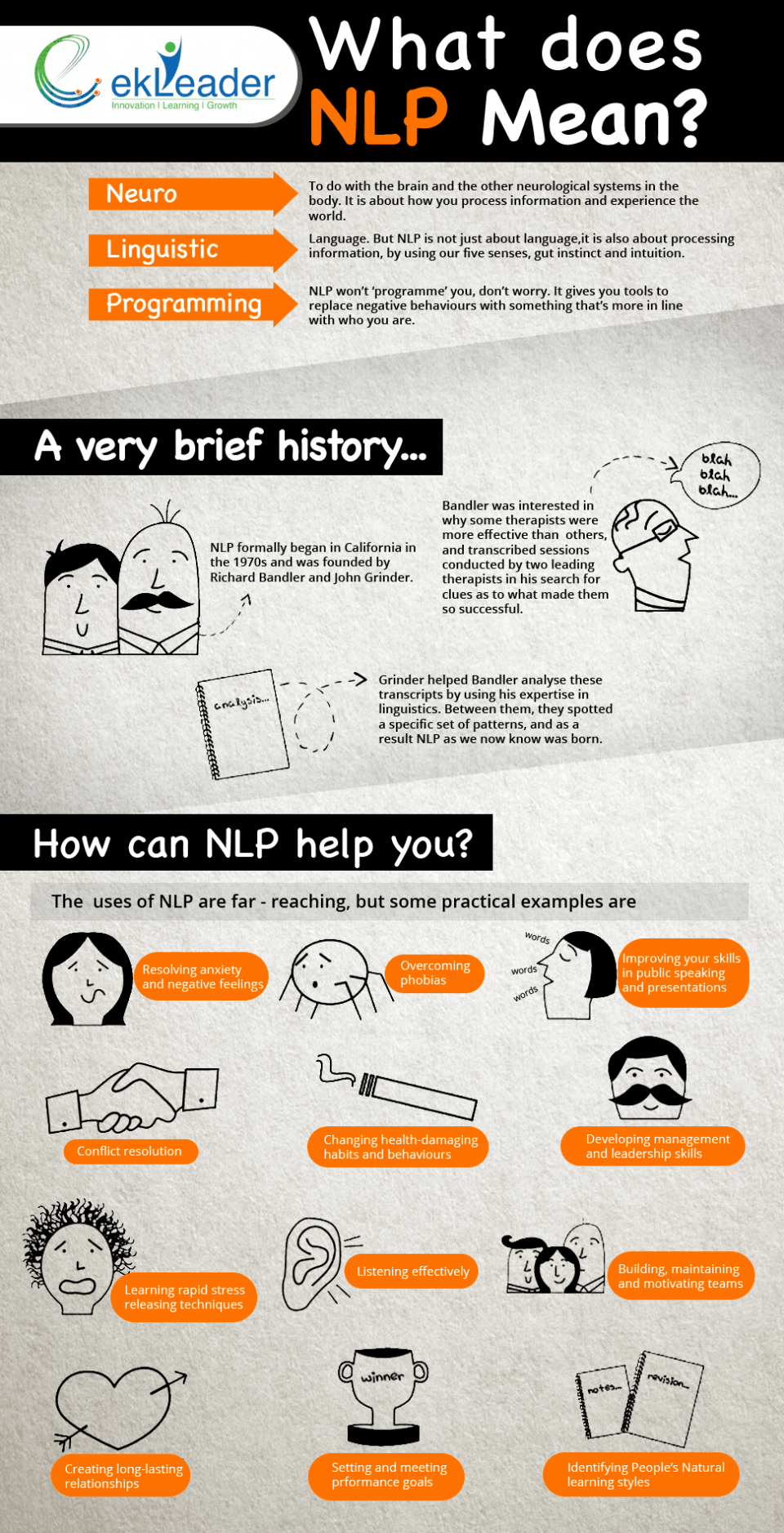History and Benefits of Neuro-Linguistic Programming Infographic
Neuro-Linguistic Programming (also known as NLP) has two main components to the change or “programming” that it tries to bring about. First is the neuro or the brain component and the second is the language component, which not only involves speech but also involves the five senses, gut instinct and intuition. The term was coined first by Dr. Richard Bandler in the 1970s. He defines it in the Oxford dictionary as - "a model of interpersonal communication chiefly concerned with the relationship between successful patterns of behaviour and the subjective experiences (esp. patterns of thought) underlying them" and "a system of alternative therapy based on this which seeks to educate people in self-awareness and effective communication, and to change their patterns of mental and emotional behavior." It is a multi-dimensional process that uses strategic thinking and understanding of the various processes that determine behavior.
NLP began in the early 1970s when an associate professor at the university of California, John Grinder teamed up with a student, Richard Bandler. Bandler and Grinder were curious as to why certain people were more successful in what they did than others. For instance, they questioned why certain therapists were more successful than the rest. Bandler then took appointments with the top three people in the industry to figure out what made them who they are and what was the common thread that connected their principles. The therapists did not obviously give them raw data about their behavior. Bandler and Grinder figured out the pattern that was inherent in these therapists by using Grinder’s expertise in linguistics. They used language-based models to analyze patterns of behavior. NLP was thus born.
NLP functions on two presuppositions:
- We do not know the actual reality. We behave on perspectives, and our perceptions of reality. Our limitations are not based on the reality, but rather our “neuro-linguistic” maps of reality.
- The body, the society and the universe are inseparable. The processes that take place within them and among them are systemic. They interact and influence each other. They are fundamentally based on principles that seek optimal states of balance.
Benefits of NLP:
- Eliminating negative energy from self. NLP helps individuals bring down their stress levels, resolve anxiety and incorporate positive feelings within themselves.
- NLP helps individuals resolve fears and phobias using dissociation. Conventional methods usually take years to cure phobia.
- Improved soft skills and greater confidence and command in activities such as public speaking.
- Peace within self and with others. NLP has been credited to resolve various conflicts.
- Improved life style in general that involves changing behaviors and habits that can potentially harm one’s mind and health.
- Confidence in one’s own abilities that will help individuals develop managerial and leadership skills.
- Knowledge of techniques that will help reduce or release stress levels.
- The ability to listen effectively and grasp essentials.
- Skills that are required to be able to work with a team at work or otherwise. NLP enables individuals to build teams, maintain and run teams, and manage teams.
- Creating long term relationships with peer groups, colleagues, family and other members of the society.
- Achieving various targets and goals in life. NLP programs will help individuals to work smartly and effectively. These programs will also help individuals set their objectives and goals (both long and short term), meet their objectives and performance goals.
12) NLP programs will enable individuals in identifying people’s natural learning styles.
In short, NLP is also about self-discovery, wisdom and vision. It makes individuals relate to the spiritual part of human experience.







You can adjust your cookie preferences here.